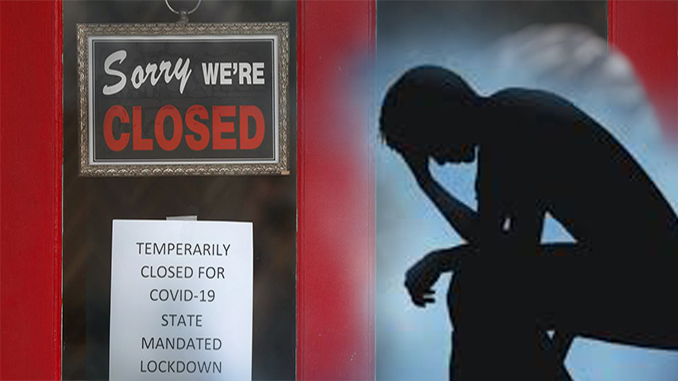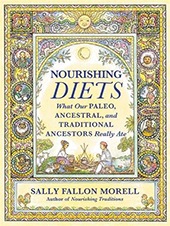
By Tilton Adler
Science shows that it may be harder to recover from Covid-19 if, like tens of millions of Americans, you struggle with chronic health conditions. But mainstream media and corrupt news outlets tend to focus only on those who become ill from the virus. Fortunately, the chances of contracting—let alone dying from—Covid-19 are incredibly low. According to a recent study conducted in association with Stanford University, “For a 50-to-64-year-old individual . . . the probability of a hospitalization is 1 in 709,000—and the median estimate of a fatality is 1 in 6,670,000.” Many more of us will, however, experience a litany of otherwise preventable health consequences, due in large part to the government’s ongoing “prevention” protocols, i.e., “lockdowns.”
Lockdowns have not helped the basic health of the average American. One dangerous health implication often left out of the coronavirus conversation is weight gain during quarantine, or the “Quarantine 15” as it’s been dubbed. According to WebMD, Americans have really packed on the pounds during lockdown. Excessive weight gain, especially in a short period of time, can result in a build-up of fatty liver enzymes and increase the risk for developing hypoglycemia and pre-diabetes. Increased cholesterol levels and high blood pressure readings have also been linked to quarantine weight gain. Unfortunately, our options for how, when, and where we exercise have been systematically obstructed. Gyms, state parks, running trails, beaches, and more have been closed sporadically and arbitrarily, leaving a void. Approximately 72% of those polled by WebMD say their exercise routine has been negatively affected. As exercise and mental health are interrelated, the lockdown orders have not only made us more likely to experience weight gain and poorer physical health, our mental wellness is also being adversely affected.
For every life saved through authoritarian stay-at-home measures, another is put at risk of death from suicide, drug overdose or other devastating expressions of mental health crises. According to an article published in the April 2020 Journal of the American Medical Association (JAMA), many of the public health interventions intended to suppress the spread of the virus will likely create the “perfect storm” for a national mental health crisis. Continuation of state mandated isolation, surges in unemployment, and persistent, pervasive doomsday media coverage has led to a conspicuous increase in depression and anxiety among both adults and children. Aiding and abetting these existential crises, alcohol consumption is at an all-time high, and individual debt is skyrocketing. The closure of churches and other religious gatherings may also lead to otherwise preventable deaths, as participation in such events is correlated with a five-fold reduction in suicide compared to those who don’t attend services.
Four months since the JAMA article, the “perfect storm” has swept the nation. But this is not an unprecedented phenomenon. Significant increases in suicide and disturbances to mental health were documented after both the 1918 Spanish Flu pandemic and the 2003 SARS outbreak. We are forced to ask ourselves an uncomfortable question: Is a life saved from the coronavirus today more valuable than a life taken due to these oppressive ‘protections’ tomorrow?

Journalists and mental-health advocates are not alone in their concern over the long-term implications of the government shutdowns. In May, more than 500 licensed physicians signed a letter to President Donald Trump, expressing their “alarm over the exponentially growing negative health consequences of the national shutdown. . . . The millions of casualties of a continued shutdown will be hiding in plain sight, but they will be called alcoholism, homelessness, suicide, heart attack, stroke or kidney failure.” The letter continues, “In youths it will be called financial instability, unemployment, despair, drug addiction, unplanned pregnancies, poverty, and abuse.” The American Medical Association has compiled a report highlighting a dangerous increase in opioid-related mortality during the Covid-19 crisis. In Washington state, the Yakima County medical examiner is reporting an unsettling uptick in suicide by 30%. During her speech at the Republican National Convention, First Lady Melania Trump acknowledged the impact Covid-19 has had on our nation’s citizens and offered kind words to those struggling: “I know many people are anxious and some feel helpless. I want you to know you are not alone.”
We are approaching an impasse with the national response to the coronavirus. If we stay home, we reduce our exposure to the virus but increase our exposure to other, potentially lethal health problems. We have become the ouroboros—going round and round, eating our own proverbial tail. For nearly six months the imminent mortality of this virus has been the pounding narrative driven by the mainstream media. In reality, we’ve likely just begun to see how devastating this pandemic will be. The long-term consequences of the states’ over-governance may prove more damaging than the disease itself.
AMERICAN FREE PRESS would like to hear your coronavirus lockdown story. Contact us via email at [email protected] or send us a letter at AFP, 117 La Grange Avenue, La Plata, MD 20646.
If you or someone you know needs immediate support, please contact The National Suicide Prevention Lifeline at 1-800-273-8255.





